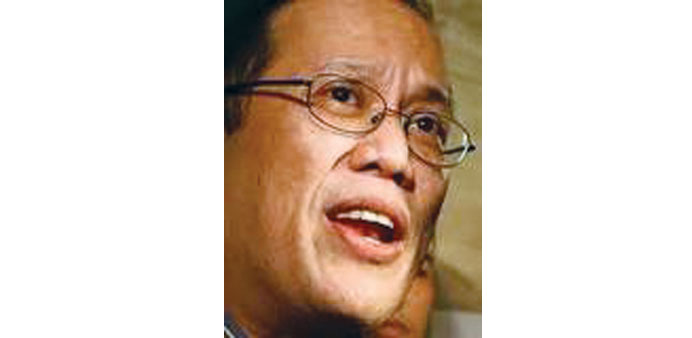Manila Times
Now that President Benigno Aquno 3rd has expressed openness to charter change (Cha-cha), representative Rodolfo Albano 3rd of Isabela can’t wait for the house of representatives to start discussing and reviewing proposed constitutional amendments through a constituent assembly.
“We should not waste time debating on whether we need charter change. It is the right time to buckle down to work and amend the outdated provisions of the 1987 Constitution to pave the way and spur economic growth and political stability and harmony in the country,” Albano said over the weekend.
He noted that lawmakers should seize the moment since the president had been “cold” to proposals to amend the constitution in the past.
“This is a big opening, a great opportunity and a challenge to the house leadership especially speaker [Feliciano] Belmonte Jr, the prime mover of charter change, to push for it now,” Albano said.
A constituent assembly is one of three methods by which the 1987 Constitution can be amended, the other two being constitutional convention and people’s initiative. All three require ratification by a majority vote in a national referendum. A constituent assembly is composed of all members of the house and senate. Under Article XVII of the Constitution of the Philippines, amendments pass upon a vote of three-fourths of all members of congress.
But Albano, a member of the minority bloc, warned that any amendment should benefit the people, not advance the interests of a few. It should also be subjected to a plebiscite where the public can either support or reject it.
Malacanang yesterday said “the transformation of society” was the president’s main motivation in expressing openness to extending his term.
In an interview over state-run dzRB, presidential communications secretary Herminio Coloma Jr said Aquino wants the reforms he started to be completed.
“The transformation of society that was started by his administration… that’s the interest and objective of the president,” he noted.
It is for this reason, Coloma said, that Malacanang is now tracking and continues to monitor the sentiments of people on various media.
“It is important that he [Aquino] is apprised of the true sentiments of the people on how he could continue and accomplish the process of reform and [societal] change,” he added.
According to the palace official, public opinion on the issue of Cha-cha is “balanced”, an indication of its divisive nature.
Coloma explained that their own monitoring on various social media platforms, including the president’s website, indicated that the number of those opposed to the idea is equal to those who are in favour.
“We continue to track the flow of public opinion about it. I’d like to tell you that per our feedback on social media platforms and the official website of the president, the flow of opinion is balanced. If there are not in favour, there are many who are for it,” he said.
Coloma added that it would be wrong to assume that all people are against Cha-cha, stressing that all views must be factored in to arrive at an intelligent conclusion.
“It is not correct to say that all opinions are against it. We should recognise the different views [of the public], many of whom are still with the president in his bid to continue the reforms that he initiated,” he said.
Coloma also explained that the president’s position and resolve to see the completion of his reforms remain as part of his social contract with his “bosses.”
“He believes that knowing the sentiments of his bosses will give him enough input or suggestions on how he could improve these reforms,” he said.
Coloma added that it would be best to view the full interview by a television network with Aquino, where he first disclosed his change of heart on Cha-cha. When he assumed office, the president was against any move to tinker with the Constitution.
“We must understand the whole context of the president’s pronouncements,” the official said.
Various political analysts and law experts last week accused the president of showing “dictatorial tendencies” for favouring a term extension, saying his predecessors attempted the same but failed.
They fear that the “social change” that Aquino has been espousing may be a prelude to a Bagong Lipunan (new society) that then-strongman Ferdinand Marcos established during the martial law regime.
Meanwhile, the umbrella group Bagong Alyansang Makabayan said groups identified with the ruling Liberal Party (LP) and Black and White Group are planning a “Yellow Rally” at the end of the month to create the perception that there is public clamour for Aquino’s second term.
Bayan secretary general Renato M Reyes Jr. said they will continue their protest actions in the coming days and that they will bring the issue of charter change and term extension to the August 25 Luneta (Rizal Park in Manila) rally against pork. The rally marks the anniversary of the Million People March last year that was triggered by the pork barrel scam.
“The connection is quite clear. Charter change and term extension are being used to get back at the Supreme Court for the DAP [Disbursement Allocation Program] decision. Term extension is being used to skirt accountability over the DAP and corruption. The Pork Barrel King now wants to be a dictator,” Reyes added, referring to Aquino.

